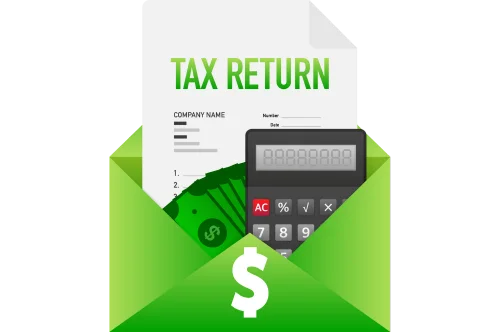Buying and selling property is a significant financial commitment, and the taxes involved can make a huge impact on the overall cost. Whether you’re a buyer or seller, understanding the property sale and purchase taxes is crucial to making informed decisions and saving where possible.
In this blog, we’ll break down the taxes involved in the property sale and purchase process and offer insights on how to save money while ensuring compliance with the law.
1. Taxes for Property Sellers
When selling a property, the seller is responsible for paying certain taxes based on the profits made from the sale and the duration of ownership. Here’s what to consider:
Capital Gains Tax
- Short-Term Capital Gains (STCG): If the property is sold within 2 years of ownership, the profits are considered short-term, and the seller must pay a tax of 15% on the gains.
- Long-Term Capital Gains (LTCG): If the property is held for more than 2 years, the seller qualifies for long-term capital gains tax, which is taxed at 20% (with indexation benefit). The indexation benefit allows you to account for inflation, effectively reducing the taxable gain.
How to Save on Capital Gains Tax:
- Exemption under Section 54: If the proceeds from the sale of a residential property are used to purchase another residential property within 2 years (or construct one within 3 years), the seller can claim an exemption under Section 54 of the Income Tax Act. This means that the capital gains tax on the sale of the first property may be reduced or entirely eliminated.
- Reinvest in Residential Property: If you reinvest your gains into a property that is eligible for tax exemptions (such as a new residential property), you can save a significant portion of your capital gains tax.
- Offset Losses with Other Investments: If you’ve incurred losses on the sale of other properties or assets, you can offset those against the gains made from the sale of the current property under the same financial year.
Understanding property sale and purchase taxes in advance can help minimize liabilities and optimize financial outcomes for sellers.
2. Taxes for Property Buyers
When purchasing property, the buyer is also required to pay various taxes. Here’s a breakdown of the key taxes:
Stamp Duty
Stamp duty is a tax levied by the state government on the transaction value of the property. The amount varies depending on the state or union territory in which the property is located, and it typically ranges from 4% to 7% of the property value. Stamp duty is a mandatory cost that must be paid for property registration to be legally valid.
Registration Charges
In addition to stamp duty, buyers must pay registration charges, which are usually a percentage of the property value (around 1% to 2%). This is required to record the transaction with the local land registry.
Goods and Services Tax (GST)
GST is applicable in the case of buying new properties directly from builders. The GST rate on under-construction properties is typically 5% for residential properties and 12% for commercial properties. However, GST is not applicable to properties that are ready for possession or resale properties.
How to Save on Property Taxes as a Buyer:
- Opt for Ready-to-Move-In Properties: GST is applicable only on under-construction properties. If you choose ready-to-move-in properties, you can avoid paying GST altogether.
- Negotiate the Purchase Price: Stamp duty is based on the transaction value of the property. Negotiating a lower price can help reduce your stamp duty costs.
- First-Time Home Buyer Benefits: In some states, first-time homebuyers may be eligible for lower stamp duty rates. Check with local authorities to see if any benefits apply to you.
- Exemption for Women Buyers: In many states, women who buy property are eligible for a reduced stamp duty rate, which can save a significant amount of money.
Taking the time to research property sale and purchase taxes can help buyers save significant amounts.
3. Tax on Rent and Rental Income
If you are buying a property for rental income, there are additional taxes to consider. The rental income is taxable under the head “Income from House Property” and is subject to income tax as per the tax slab applicable to the individual.
How to Save on Tax on Rental Income:
- Deduction for Home Loan Interest: If you have a home loan, the interest paid on the loan is eligible for deduction under Section 24(b) of the Income Tax Act. You can claim a deduction of up to ₹2 lakh per year on interest paid on home loans for a self-occupied property. For a rented property, there is no limit on the deduction for interest.
- Deduction for Municipal Taxes Paid: You can also claim deductions for municipal taxes paid during the year under Section 23.
- Depreciation on Property: Depreciation on property is another way to save on taxes. If you own a rental property, you can claim depreciation (based on the value of the property, excluding land) as an expense and reduce your taxable rental income.
Being aware of the property sale and purchase taxes can help maximize savings in rental property investments.
4. Tax on Inherited Properties
If you inherit a property, no inheritance tax is levied in India. However, if you sell the property later, capital gains tax will apply based on the inherited property’s market value at the time of transfer.
How to Save on Taxes for Inherited Properties:
- Carry Forward the Original Cost of Acquisition: When you inherit property, you inherit the property’s original purchase cost, which can significantly reduce the capital gains tax when you sell it.
- Claim Exemption under Section 54: If you sell the inherited property and use the proceeds to buy a new property, you may be eligible for tax exemptions under Section 54, just like any other property seller.
Awareness of property sale and purchase taxes in the case of inheritance can help reduce the tax burden when selling inherited assets.
5. Additional Tax Considerations
- Tax on Sale of Agricultural Land: In certain cases, agricultural land is exempt from capital gains tax if it is sold under specific conditions.
- Tax Relief for Senior Citizens: Some states offer reduced stamp duty or tax relief for senior citizens who buy or sell property.
- Goods and Services Tax (GST) on Property Rentals: If the rental income exceeds ₹20 lakh annually, GST may apply to commercial properties or short-term rentals.
Conclusion: Saving on Property Sale and Purchase Taxes
Property transactions can involve significant tax liabilities, but there are multiple ways to minimize these costs. Understanding the various property sale and purchase taxes applicable during property sale and purchase is essential to reducing financial burden and maximizing savings.
- For Sellers: Plan for capital gains taxes and take advantage of exemptions like Section 54 for reinvestment in property.
- For Buyers: Be aware of stamp duty, registration charges, and GST, and consider opting for ready-to-move-in properties to save on GST.
Consulting with tax experts or property consultants can also help you navigate the tax complexities of property transactions and ensure that you are making the most tax-efficient decisions. By staying informed and strategic, you can reduce the overall tax impact of property sales and purchases and make the most out of your investment.
Our Tax Services

ITR Filing
ITR Filing services provide full assistance with Income Tax Return submissions, ensuring accurate and timely compliance with all tax regulations and statutory requirements for both individuals and businesses.

Tax Audit
A tax audit reviews financial records to ensure compliance with tax laws, verifying income, deductions, and expenses. It minimizes errors and helps businesses avoid penalties, ensuring accurate tax reporting.

E-Commerce Tax Services
Navigating taxes as an e-commerce seller can be challenging due to the unique complexities of online businesses. Here’s a quick overview of the essential tax services that can help simplify compliance and optimize tax savings





